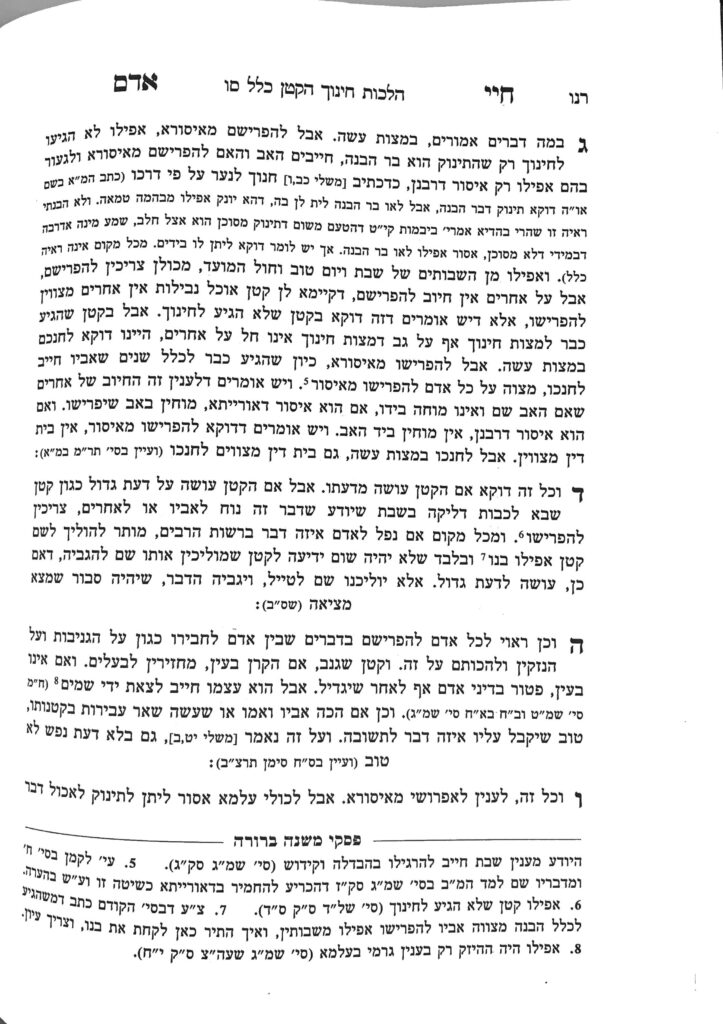We are continuing in siman 4. We learned that although a parent must stop their child from transgressing a mitzvah for the benefit of the parent, if the child does not realize they are doing anything beneficial for the adult, it is muttar to benefit from the child’s transgression. Thus, for example, if a person drops something in a reshus harabim on Shabbos, they can bring a child–(and the Chayei Adam adds even their own child)–to that area under some other pretense, for the purpose of the child seeing the object and bringing it home thinking they have acquired it.
This halacha is brought in Shulchan Aruch, in siman 362. However, the Mishnah Berurah there writes that this heter does not apply to one’s own child, because, as we have learned previously, a father has a chiyuv chinuch to stop a child from transgressing mitzvos. Thus, the Mishnah Berurah concludes that the scenario must be where another adult is setting up this heter, not like the Chayei Adam who extends this heter to one’s own child.
The Piskei Mishnah Berurah raises the question on the Chayei Adam that the Chayei Adam’s extension to one’s own child does not make sense, but does not point out that the Mishnah Berurah is in direct opposition. The Piskei Mishnah Berurah remains with the question.
Although other adults may facilitate the scenario, thereby indirectly causing the transgression, they cannot be safi lei beyadayim, actively cause the child to transgress. We will learn more about this concept, and the definition of active and passive transgression, in siman 6.
In siman 5, the Chayei Adam discusses the obligation to stop a child from transgressions regarding mitzvos bein adam lechavero. The argument can be made that regarding mitzvos bein adam lamakom, Hashem says that the child is not obligated, as we have been learning until now. However, regarding other people, maybe there is a responsibility to protect the victims which would therfore obligate the parents, or other adults, to intervene. We will learn about this concept in the next shiur, be’ezras Hashem.
Summary
- The Chayei Adam holds that once a child reaches the age of six or seven, the chiyuv chinuch extends beyond the father to other members of Klal Yisroel if the child is transgressing a mitzvas lo saasei on a deoraysa level. However, the chiyuv chinuch does not extend beyond the father in any other circumstance
- The above applies regarding a child transgressing a mitzvah for their own benefit. If the child of any age wishes to transgress any mitzvah for the benefit of others, all opinions agree that the adults must stop them.
- However, if the child does not realize they are benefiting the adult, it is muttar to benefit from the transgression, and even muttar for the adult to facilitate the transgression for their benefit.
- According to the Mishnah Berurah, one may not facilitate a transgression for their own child, but only for another’s child. This is our accepted psak, and is not in accordance with the Chayei Adam, who holds that one may facilitate a transgression even for their own child.



